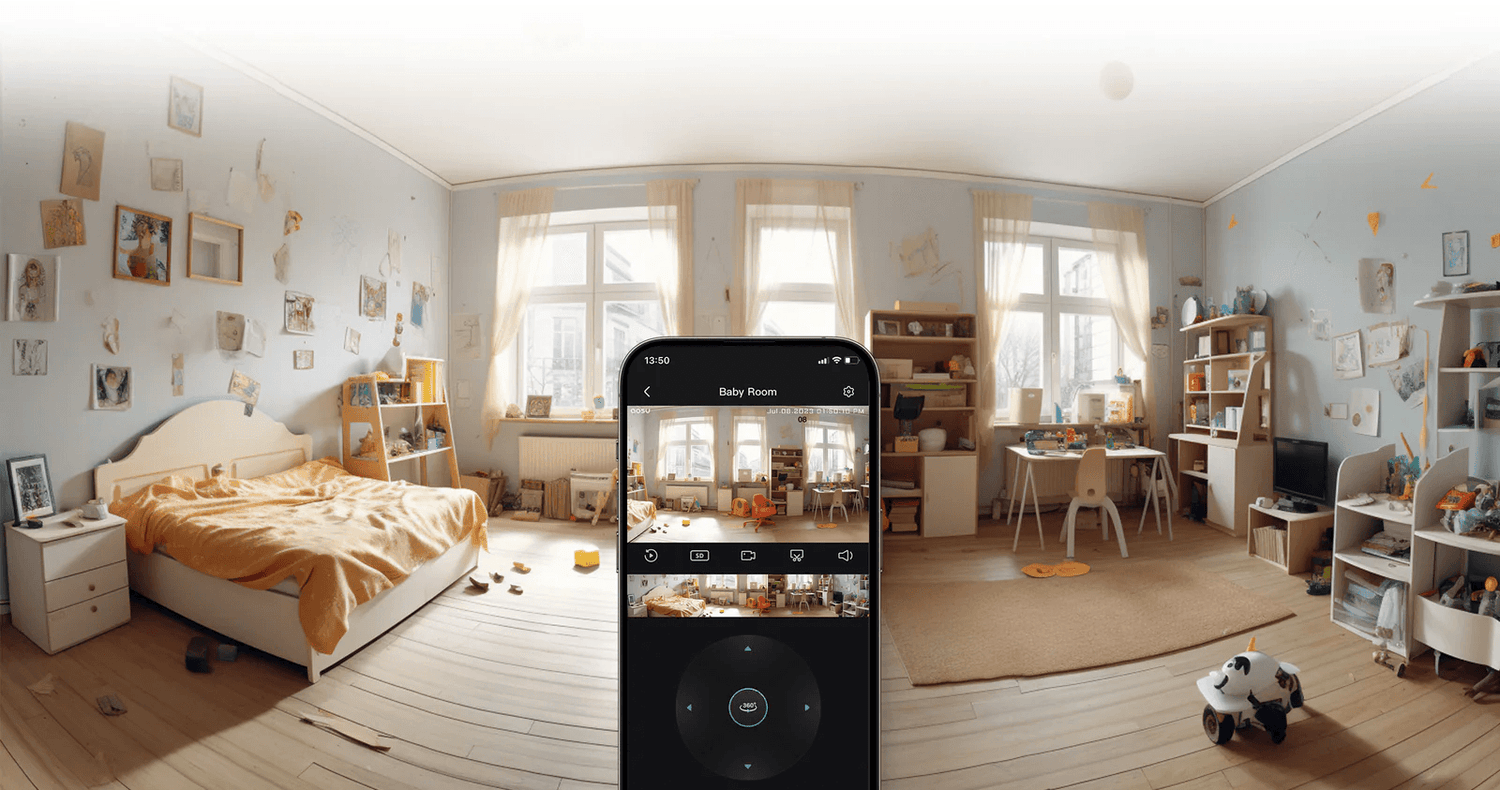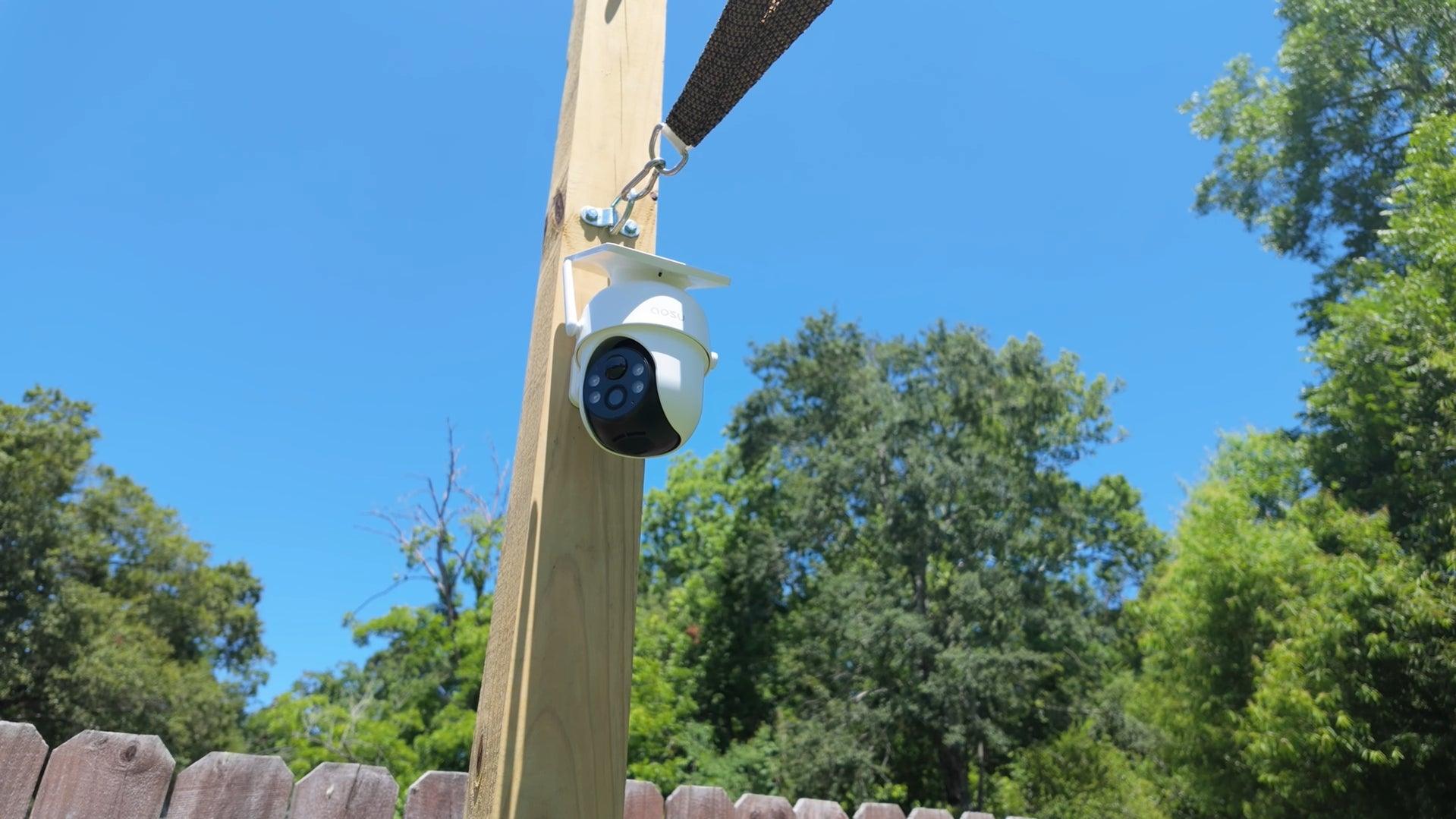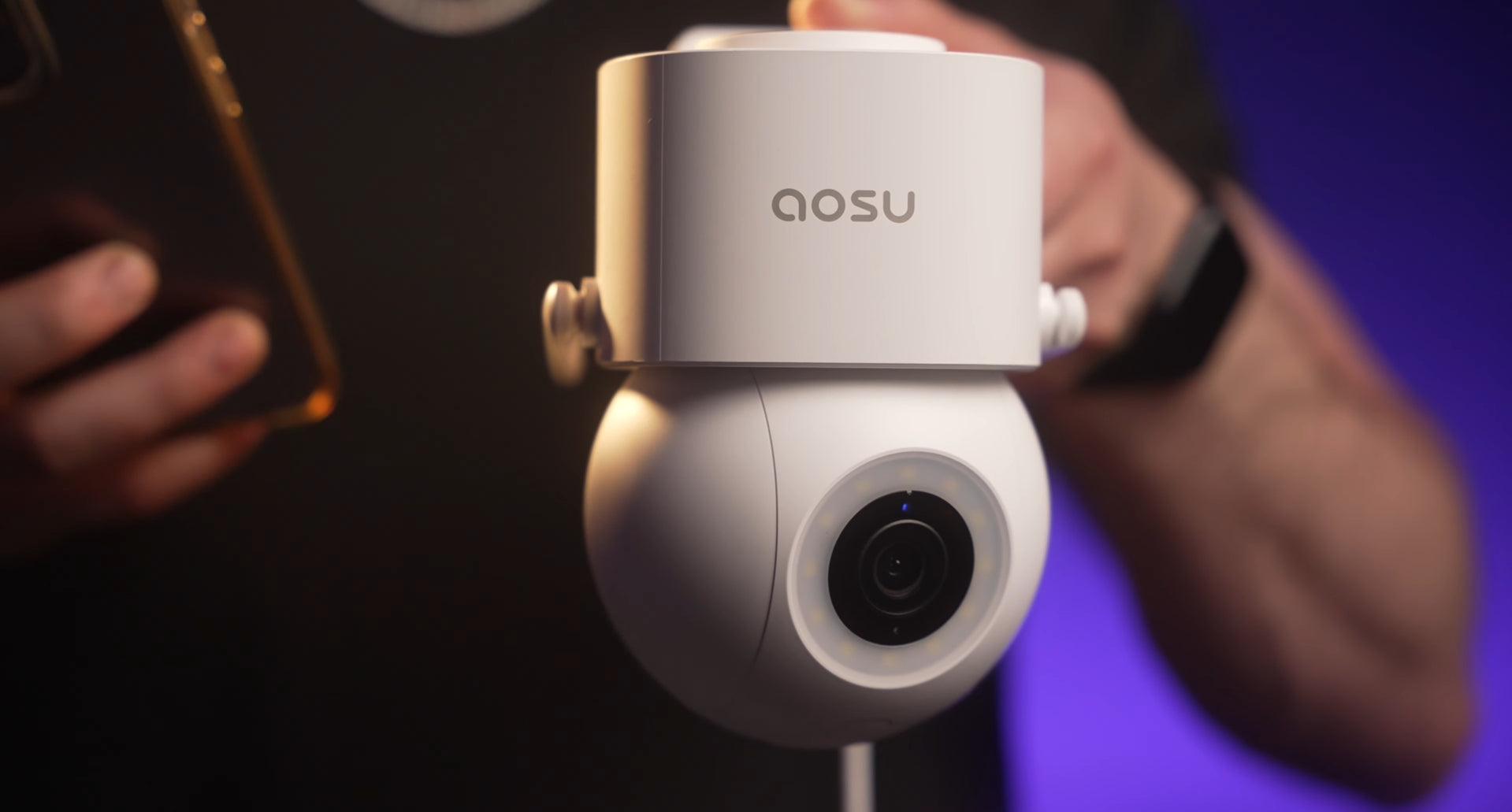How Can I Make My Apartment More Secure?
Why Do Tenants Need Apartment Cameras?
What Factors Should I Consider When Installing Apartment Cameras?
Living in an apartment comes with unique security challenges, making it crucial to prioritize security for apartment dwellers. Whether you're renting or own your space, protecting your apartment is essential to ensuring peace of mind. Unlike standalone houses, apartments often share common areas, making them more accessible to outsiders. This shared nature means additional vigilance is required to safeguard your home and personal belongings.
From securing your entryways to using smart technology, there are several effective ways to enhance your apartment's security. Installing robust locks, using security cameras, and implementing smart lighting can significantly improve protection. Simple habits like always locking doors and windows or ensuring your building’s security systems are up to date can make a big difference in preventing intrusions. Whether you’re new to apartment living or just looking to upgrade your current setup, adopting these strategies will help you create a safer, more secure living environment. In this guide, we’ll explore practical tips to bolster security for apartment dwellers and protect your space from potential threats.
How Can I Make My Apartment More Secure?
Making your apartment more secure is a key step to ensuring peace of mind and protecting your belongings. Whether you’re moving into a new place or enhancing the safety of your current home, there are several practical ways to boost security for apartment living. Here are some essential steps to consider:
1. Consider Security Before Moving In
Before signing a lease, evaluate the security measures already in place. Look for features like secure entrances, sturdy doors, well-lit common areas, and functioning locks on windows. Also, ask the landlord or property management about any past security issues or improvements they’ve made. A well-secured building is an excellent first line of defense, so prioritize safety features when choosing an apartment.
2. Install a Security System
Even in apartments, installing a security system is a valuable step. Modern systems are wireless, easy to install, and offer features such as motion detectors, door sensors, and security cameras. Some systems even offer remote monitoring, allowing you to keep an eye on your apartment via a smartphone app, whether you’re at home or away. These systems act as a deterrent to potential intruders and provide peace of mind.
3. Upgrade Door Locks
Apartment locks often remain the same from tenant to tenant, which can pose a risk if previous occupants still have keys. To secure your entry points, consider upgrading your door locks. A high-quality deadbolt or a smart lock with keyless entry provides added protection. Speak to your landlord about replacing outdated locks or adding additional security measures, like a door chain or reinforced strike plates.
4. Consider Security Cameras
Installing security cameras in strategic locations, such as near the front door, is an effective way to monitor who enters your apartment. Many modern cameras offer two-way audio, motion detection, and video storage options, so you can review footage anytime. Wireless cameras are easy to install and can be positioned discreetly to avoid damage to the apartment walls.
5. Meet Your Neighbors
Getting to know your neighbors is an often-overlooked way to improve security for apartment living. Building relationships with those around you fosters a sense of community and mutual trust. Neighbors who look out for each other can report suspicious activity and help in case of emergencies. Being part of a supportive community enhances overall safety.
6. Get Renters Insurance
Even with all the security measures in place, it’s wise to have renters insurance to cover potential losses from theft or damage. Renters insurance provides coverage for your belongings in case of burglary, natural disasters, or other unexpected incidents. It's a small investment that can offer significant financial protection.
Why Do Tenants Need Apartment Cameras?
Tenants need apartment cameras for several reasons, all centered around improving safety, security, and peace of mind. While living in an apartment offers convenience, it also comes with shared spaces and increased accessibility, which can make tenants more vulnerable to security breaches. Here’s why installing security cameras in your apartment is a smart investment:
- Deter criminal activity
- Peace of mind while away
- Support in case of incidents
- Monitor visitors and deliveries
Tenants need apartment cameras to enhance security, deter criminal activity, and monitor their space. Cameras provide peace of mind by allowing tenants to keep an eye on visitors, deliveries, and any unusual activity in real-time, even when they’re not home. Visible cameras can deter potential intruders, reducing the likelihood of break-ins or theft. In case of incidents like vandalism or disputes, recorded footage offers valuable evidence for law enforcement or property management. Additionally, cameras contribute to overall building security, fostering a safer environment for everyone in the community.

What Factors Should I Consider When Installing Apartment Cameras?
When installing apartment cameras, there are several important factors to consider to ensure you comply with regulations, respect privacy, and choose the best system for your needs. Whether you want to enhance security or monitor daily activity, making informed decisions is key to getting the most out of your security for apartment setup. Here are the key considerations:
Examine Your Lease Agreement
Before installing any security cameras in your apartment, carefully review your lease agreement. Many landlords have specific rules regarding modifications to the property, especially those that involve drilling holes or altering walls. Some leases explicitly prohibit the installation of certain types of surveillance equipment. Ensuring you understand the terms of your lease helps you avoid any breaches that could lead to penalties or disputes. If the lease is unclear, this leads us to the next important point.
Chat with Your Landlord
It’s always a good idea to communicate with your landlord before installing apartment cameras. Even if your lease doesn’t directly prohibit them, it’s courteous and beneficial to discuss your plans. Some landlords may have a preferred security system in place or might even assist in installing cameras for common areas like hallways or entrances. By having a clear conversation, you also avoid misunderstandings and ensure that everyone’s expectations align.
Consider Privacy Concerns
While security for apartment is crucial, you must also take privacy into account. Be mindful of where you place your cameras to avoid invading the privacy of your neighbors. It’s illegal in many regions to record audio or video of people in shared spaces, such as hallways, without their consent. Similarly, cameras should never point toward neighboring apartments or private areas like bedrooms and bathrooms. Ensuring you respect the privacy of others while securing your space is essential.
Wireless vs. Wired Security Cameras
One of the key decisions to make when installing apartment cameras is whether to go for wireless or wired systems. Wireless cameras are typically easier to install and move, making them ideal for apartment dwellers who want to avoid drilling or major modifications. They connect to your Wi-Fi and often offer features like remote monitoring through an app. On the other hand, wired cameras tend to be more reliable as they’re not dependent on Wi-Fi signals, but they require more complex installation. Consider your needs and the building's infrastructure before choosing the right system.
Prioritize Simple Installation
In an apartment setting, the ability to install cameras easily is crucial, especially when your lease limits modifications. aosu security cameras are ideal for such situations, as they offer simple, wireless setups without the need for drilling or extensive wiring. This makes them perfect for renters who want to enhance security without violating their lease terms. Many aosu cameras are designed for quick installation using adhesive mounts or basic tools, allowing you to secure your apartment efficiently and with minimal hassle. Their battery-operated options further simplify the process, ensuring you can prioritize security without complicated installations.
Motion Detection and Alert Features
For effective security for apartment living, motion detection is an essential feature to look for in a camera. Many cameras today come with motion sensors that can detect movement and send real-time alerts to your smartphone. This feature is particularly useful when you’re away from home, allowing you to monitor any suspicious activity in or around your apartment. Some systems also offer advanced motion detection, which can differentiate between people, animals, or objects, minimizing false alarms.
Field of View and Angle
When selecting apartment cameras, it's essential to consider the camera’s field of view and angle, as these factors determine the area it can effectively monitor. For apartment entryways or hallways, opting for a camera with a wide field of view ensures you capture the maximum coverage, keeping key areas secure. Adjustable or rotating cameras are also great options, offering flexibility in coverage and ensuring no blind spots are left unmonitored. Carefully evaluate the specific areas you want to monitor and choose a camera that offers the ideal angle and range for those spaces to enhance security for apartment living.
Affordability Without Compromising Quality
Lastly, it’s important to find a camera that fits your budget without compromising on quality. There are many affordable options for security cameras that still offer essential features like HD video, night vision, and motion detection. Look for reliable brands with good customer reviews, and compare features to ensure you’re getting the best value. While it's tempting to go for the cheapest option, prioritize security features that will effectively protect your apartment.
Start with aosu
When installing aosu security cameras in your apartment, it's helpful to consider several key factors to ensure a smooth and effective setup. Start by reviewing your lease agreement and discussing your plans with the landlord to ensure compliance with property rules. This step will help avoid any violations or misunderstandings.
Privacy concerns should be a priority, ensuring that cameras are positioned to monitor your space without infringing on neighbors’ privacy. It's important to respect shared spaces and avoid pointing cameras toward neighboring units. Proper placement will help you stay within legal boundaries while securing your apartment. aosu’s wireless cameras are perfect for apartments due to their easy, non-invasive installation, making them renter-friendly. Features like motion detection and real-time alerts offer convenience and added security.
Consider the field of view and angle for optimal coverage in high-traffic areas like entryways and hallways. Lastly, aosu cameras provide a balance of affordability and quality, offering HD video and night vision, making them ideal for enhancing security for apartment living.

Final Thoughts
In conclusion, enhancing security for apartment living is a smart and necessary step for peace of mind and safety. By carefully choosing the right security cameras, respecting privacy, and following your building’s guidelines, you can effectively protect your space. Whether it’s using aosu cameras with easy installation and advanced features like motion detection or simply upgrading your locks, these actions will greatly improve the security of your apartment. With the right precautions, you can enjoy a safer and more secure living environment.










Leave a comment
This site is protected by hCaptcha and the hCaptcha Privacy Policy and Terms of Service apply.